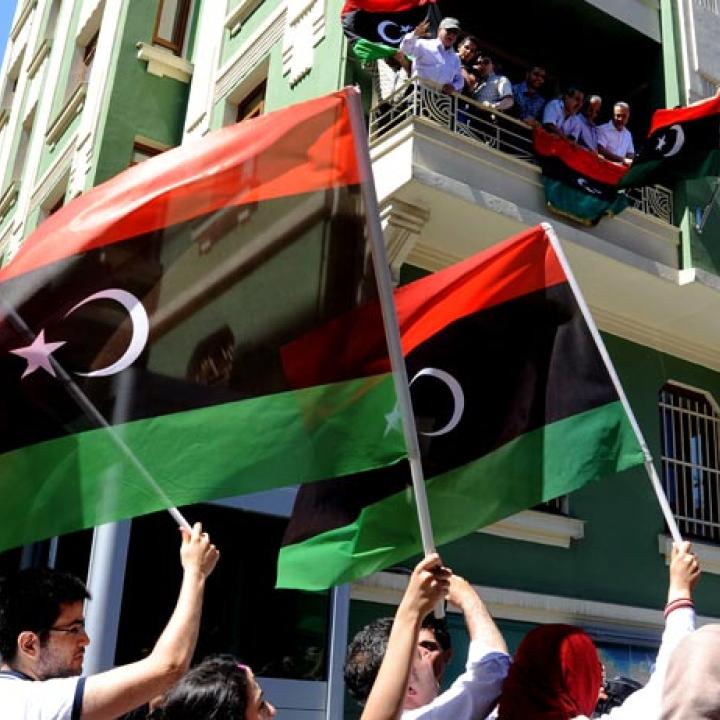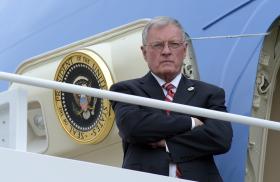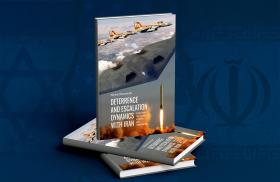
- Policy Analysis
- Fikra Forum
Libya’s High National Elections Commission Is a Dangerous Gamble

The UN Support Mission in Libya and the country’s rival legislatures are pushing to restructure the electoral authority, an effort that risks politicizing one of the country’s few remaining trusted institutions.
As Libya struggles toward a long-awaited electoral process, the High National Elections Commission (HNEC) stands out as one of the few institutions that still enjoys public trust and broad recognition—both locally and internationally—for its professionalism and independence. While most state institutions have fallen into political polarization and institutional fragmentation, HNEC has managed to remain a neutral, technical, and disciplined body.
This is precisely why the sudden calls to restructure the commission’s board—led by the UN Support Mission in Libya (UNSMIL) and supported by both the House of Representatives (HOR) in eastern Libya and the High State Council (HSC) in western Libya—raise serious questions: Why now? What is the real motive behind this timing? And most important, what is the cost?
HNEC’s Role
Since HNEC was established in January 2012 under Law No. 3 of 2012, it has overseen voter registration drives; organized parliamentary, constitution drafting, and municipal elections; and maintained a strong technical reputation at home and abroad, without being accused of bias or technical failure. It is widely regarded as the last functioning “sovereign” institution that operates efficiently and is accepted by all political sides. For example, HNEC succeeded in registering 2,865,937 voters in 2012 and 1,509,128 voters in 2014, and received credit for overseeing the elections held in those years. More recently, this past August, HNEC held elections in twenty-six municipalities, with a preliminary turnout reaching 71 percent. The commission affirmed its commitment to certifying results transparently, with final endorsements for thirty-four municipal councils issued September 10, reinforcing the legitimacy of local governance.
HNEC has earned strong trust and consistent support from international partners, including the United States, European Union, and United Kingdom, as a key institution in advancing Libya’s democratic process. The EU and its member states have collectively contributed more than €10 million through the UN Development Program’s “Support to Elections in Libya” project, helping HNEC strengthen its technical and operational capacities. The UK has provided additional assistance worth about $341,000 to enhance HNEC’s readiness for national elections. The U.S. Agency for International Development has also been a significant contributor, allocating approximately $13.3 million through its Libya Elections and Legislative Strengthening Activity to support HNEC and related institutions, ensuring credible, inclusive, and transparent electoral processes across the country. Together, these investments reflect broad international confidence in HNEC’s professionalism and independence.
According to HNEC’s legal framework (Law No. 8 of 2013 on HNEC), its board consists of six full‑time members plus the chairman. Currently, there are three vacant seats. However, the four members count as a legal quorum, since the chairman’s vote counts as two. The commission’s decisions have been made by a quorum of four for an extended period.
Libyan Politics and Restructuring HNEC
Authority in Libya is effectively divided between the HOR and HSC. The HOR was established in 2014 through a national election to replace the General National Congress, as mandated by the 2011 Transitional Constitutional Declaration. It is based in Tobruk and acts as the country’s internationally recognized legislature, although its authority over western Libya is contested. The HSC was formed in 2016 under the Libyan Political Agreement (Skhirat Agreement), signed in 2015. Composed mainly of former members of the dissolved General National Congress, it functions in theory as a consultative body to the HOR. In practice, it is allied with the government in Tripoli.
UNSMIL, in its latest roadmap, called for a full restructuring of HNEC’s board, including the appointment of a new chairman. The stated reason is to “correct the legal status” of the board and to enhance “transparency and credibility.”
If the commission is restructured through political bargaining between the HOR and HSC, it could be stripped of its neutrality. A reform of its board risks bringing political conflict into its internal structure, as the selection of the chairman and board members may well be based on regional power-sharing quotas rather than merit or professionalism. Members would then represent the political interests of their respective regions, creating conflicting agendas within the board. This might eventually lead the commission to go the same route as other sovereign institutions in Libya—namely, splitting into two. If that happened, Libya would risk losing the last institution that still enjoys public trust.
Replacing the HNEC leadership now would reset a system that already works. And the almost certain outcome would be more delays and added bureaucracy. Any new board or chairman will need time to understand the current situation, build relationships, and navigate the technical and political landscape. Meanwhile, election preparations will stall, and what could have been achieved in months may drag on for years.
UNSMIL perpetually struggles to overcome the fact that Libyans in power, including in the HOR and HSC, refuse any formula that would strip them of the privileges and money they enjoy. Without consistent backing from the UN Security Council and regional actors, UNSMIL is left attempting to exert its influence on less controversial issues. Reform of HNEC has become a political condition that, because it is unfulfilled, is being used by HOR and HSC members to stall and remain in their positions.
The real obstacle to elections in Libya is not HNEC, but the persistent political deadlock between the rival legislative bodies over electoral laws, candidacy conditions, and sequencing. These are not the commission’s responsibilities—they are the result of ongoing political paralysis and repeated failures of UN-led initiatives in Libya. Reforming the commission is not the main issue preventing elections from being held. Any commission would require guidance on the rules and structure of elections, the number of constituencies, and security arrangements before designing ballots and counting procedures.
Fix What’s Broken—Not What’s Working
HNEC, as it stands today, has the technical capability and public trust to run fair and credible elections. In a country exhausted by divisions, Libya cannot afford to risk the one institution that still commands confidence. HNEC is not an obstacle to elections—it may well be their last remaining hope.


